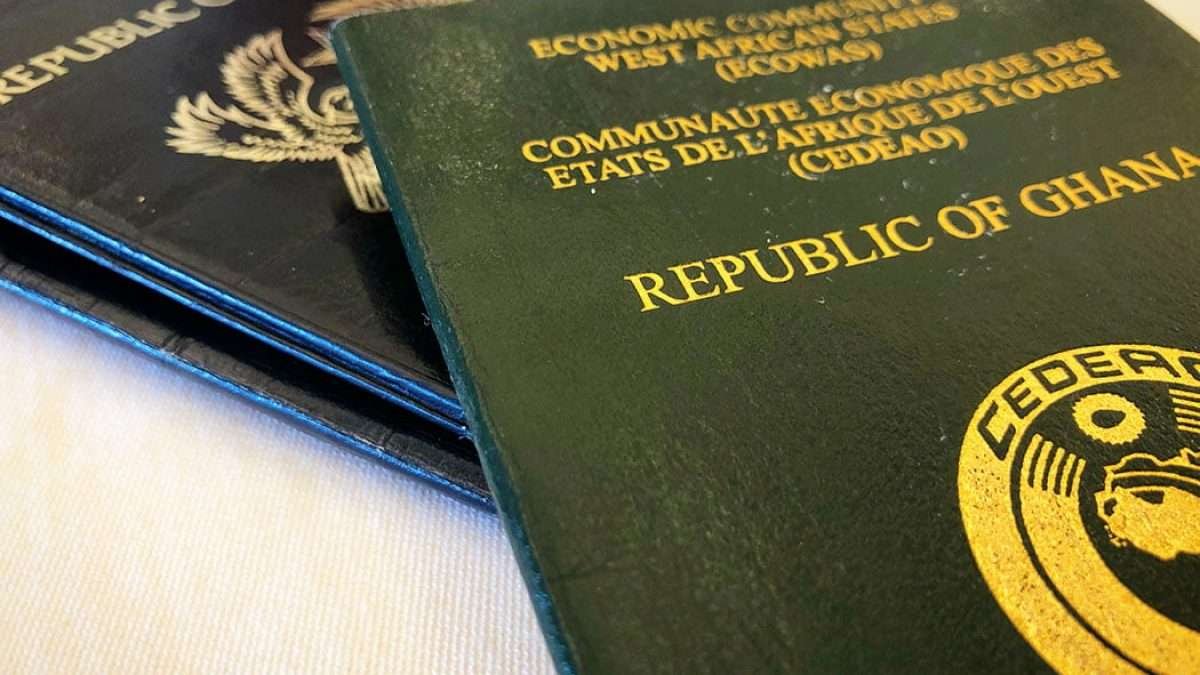Ghana Slashes Passport Fees in Major Service Overhaul, Introduces Chip-Embedded Documents and Courier Delivery
BOLGATANGA, Ghana – In a sweeping move set to ease the financial burden on millions, the Ghanaian government has announced a significant reduction in passport application fees alongside a comprehensive technological modernization of the entire application process. The landmark announcement, made by the Minister for Foreign Affairs and Regional Integration, Samuel Okudzeto Ablakwa, signals one of the most substantial reforms to the country’s passport services in recent years.
The Minister revealed that the fee for an ordinary passport will be reduced from GH₵500 to GH₵350, a 30% cut that is expected to take effect within the next three weeks. The declaration was made during the commissioning of a new temporary passport application centre in Bolgatanga, Upper East Region, an event that underscores the government’s parallel commitment to decentralizing and expanding access to essential services across all sixteen regions.
Financial Relief and Enhanced Convenience for Applicants
The decision to implement a passport fees reduction is positioned as a direct response to long-standing public concern over the cost of obtaining the critical travel document. Minister Ablakwa framed the policy as a core tenet of the government’s social democratic philosophy, aimed at making civic services more accessible to the average Ghanaian.
“In less than 21 days, the new fees will come into force, and passport application fees for the ordinary passport will no longer be GH₵500.00. It will be reduced to GH₵350.00,” Ablakwa announced to attendees, clarifying that the new, lower fee is all-inclusive.
Integral to this new pricing structure is the introduction of a mandatory courier delivery service. This service is designed to eliminate the need for applicants to make a second trip to a passport office to collect their documents, a significant hurdle for those living in remote areas or with limited mobility. The passports will be delivered directly to an applicant’s home or office.
The Minister was unequivocal in his instructions to the public regarding this new delivery system, explicitly cautioning against any form of extortion.
“When they deliver your passport, all you have to do is to verify your identity with your Ghana Card and sign. You are not to pay even one cedi more,” he stated, emphasizing that the courier cost is already embedded in the new GH₵350 fee.
This move is expected to not only improve convenience but also enhance transparency and reduce opportunities for corruption at the point of service delivery. For continuous updates on this and other developments in Ghana’s public sector, read more on Africa News Desk.
Further boosting applicant convenience is the launch of a real-time e-tracking system. This digital tool will allow individuals to monitor the status of their application from submission to production and dispatch, providing unprecedented transparency and reducing anxiety over the document’s whereabouts. Accompanying this is a commitment to significantly shorter processing times: just 15 working days for standard applications and a swift three days for expedited services.
Technological Leap: AI, Chip-Embedded Passports and Nationwide Integration
Beyond cost and convenience, the reforms represent a massive technological upgrade for Ghana’s immigration security. Minister Ablakwa announced that the country has completely phased out its old-generation biometric passports and has fully transitioned to new, chip-embedded e-passports. These new documents comply with the latest standards set by the International Civil Aviation Organization (ICAO), enhancing their global recognition and security.
“The passports you will receive here in the Upper East Region are the latest chip-embedded types. They are secure, modern, and internationally recognised,” Ablakwa said. “You see the miracle of President Mahama, enhanced services, courier delivery, e-tracking, chip-embedded passports, and yet a reduction in price. The reset is real, and the Mahama magic is real.”
These chip-embedded passports store the holder’s biometric data digitally, making them extremely difficult to forge and aligning Ghana with global best practices in travel document security.
Perhaps the most sophisticated upgrade is the digital networking of all regional passport offices with an integrated Artificial Intelligence (AI) system. This network is designed to combat fraudulent passport applications head-on. Under the new system, any individual who is blacklisted for attempting to obtain a passport through fraudulent means in one region will be automatically and immediately flagged across all other passport centres in the country.
This AI-powered national database effectively seals a major loophole that fraudsters have historically exploited by applying in different locations. This strategic move, as reported by Ghana Business News, is expected to drastically improve the integrity of the Ghanaian passport.
The government’s vision for inclusive development was a recurring theme in the Minister’s address. The commissioning of the Bolgatanga centre is a key step in the pledge to ensure all 16 regions of Ghana have a fully functional passport application centre by December 2025. This decentralisation effort is critical for ensuring that citizens in the Northern, Upper East, Upper West, Oti, and other historically underserved regions are no longer forced to undertake long and expensive journeys to regional capitals like Accra or Kumasi to access passport services.
“As a social democratic government, we believe that development must be inclusive. No part of our country should be left behind in the forward march of our progress,” Ablakwa stated, framing the new centre as a symbol of a more responsive and citizen-centric governance model.
The event in Bolgatanga was attended by a cross-section of dignitaries, including the Upper East Regional Minister, Donatus Atanga Akamugri, traditional leaders, Members of Parliament, and officials from the Ministry of Foreign Affairs. The collective presence underscored the broad political and communal support for the initiative.
The combination of a substantial passport fees reduction, the introduction of user-centric services like home delivery, and a major technological security upgrade marks a transformative moment for civic service in Ghana. This multi-pronged approach addresses the core concerns of cost, convenience, and security simultaneously, setting a new benchmark for how essential public services can be delivered efficiently and equitably to all citizens.


